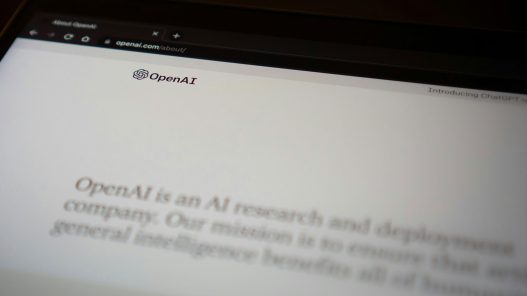OpenAI is planning to release an advanced AI agent named “Operator”, which has the potential to completely change how we will interact with artificial intelligence in the near future. This new tool is designed to perform real, meaningful actions on a user’s behalf and it’s expected to launch in January 2025. Operator aims to fill the gap where automation and decision making come together, by performing quite a number of tasks that range from writing code, booking travel, to handling administrative tasks.
A Bloomberg report claims that this business move marks OpenAI’s entry into a broader trend of “agent AI”, an AI model that doesn’t just advise but actively performs. But what does this imply to entrepreneurs and executives in the tech sector? Let’s take a closer look.
‘Operator’ works for you, Not just with you
Artificial Intelligence has largely remained a strong advisor for many years now, where it has helped suggest ideas and bring up insights but leaving the user to make decisions and take action. The introduction of Operator will help OpenAI change its course and go beyond AI as a passive assistant to become a real time agent. Operator handles tasks automatically. It’s a tool that will soon start managing emails, scheduling meetings, and much more by just understanding your preferences and needs. As OpenAI CEO Sam Altman suggested in a recent Ask Me Anything session, agents like Operator might be “the next giant breakthrough,” setting a new standard for AI’s role in daily business life.
The growing appeal of agentic AI
OpenAI isn’t alone in this push for agent-driven tools. Anthropic has also released an AI that can act on a user’s behalf, monitoring what’s happening on their computer and taking swift action when needed. Microsoft, too, has launched a suite of agent tools focused on simplifying routine tasks for workers, like sending emails and managing documents. Google isn’t far behind, reportedly developing a similar solution to integrate into its ecosystem. OpenAI’s focus, however, appears more universal—Operator is expected to work within a web browser, making it adaptable and accessible without any specific platform requirement. This places it in a unique position in the market, potentially giving it an edge over competitors in versatility and ease of use, as Bloomberg reported.
Designed for developers, and open for experimentation
Operator won’t just be a tool for direct users; it’s also set to debut as a research preview and as an API for developers. This means businesses can integrate and experiment with Operator’s capabilities, potentially creating customized solutions tailored to their workflows. For example, a developer might create a specific protocol that lets Operator manage a client’s digital infrastructure or even perform financial analysis tasks. By opening up this tool to experimentation, OpenAI encourages developers to push the boundaries of what agentic AI can achieve. This reflects a philosophy where innovation doesn’t just end at the lab but extends into the hands of those who can build on it.
The promise and the challenge ahead
Such powerful autonomy doesn’t always come without risks. Giving an AI agent the ability to execute tasks without direct oversight raises questions of security and ethics, especially when sensitive information or complex decisions are involved. OpenAI’s move to test Operator first as a “research preview” suggests caution and a willingness to gather real-world feedback before full deployment. Additionally, Bloomberg notes that Operator’s release arrives amid mounting pressure on tech firms to show returns on their AI investments, especially as scaling up these technologies demands enormous resources. Operator, therefore, isn’t just about advancing AI capabilities—it’s also a business strategy, a bold step toward ensuring OpenAI remains competitive in a crowded market.
OpenAI’s Operator could be the next essential tool for professionals seeking not just convenience but an entirely new way of managing tasks. It’s a pioneering step into a realm where AI doesn’t just assist but actively works alongside, and sometimes for, its users.
Image Source: Unsplash.com























